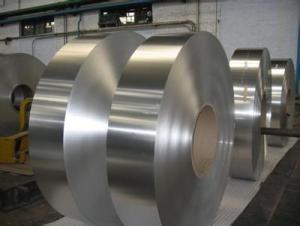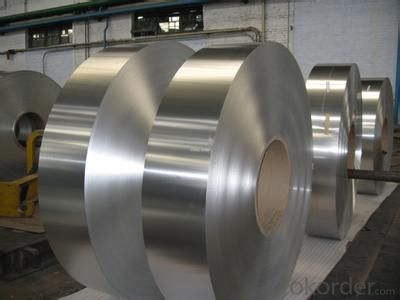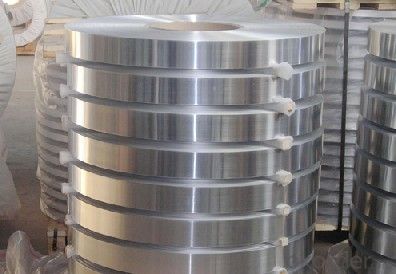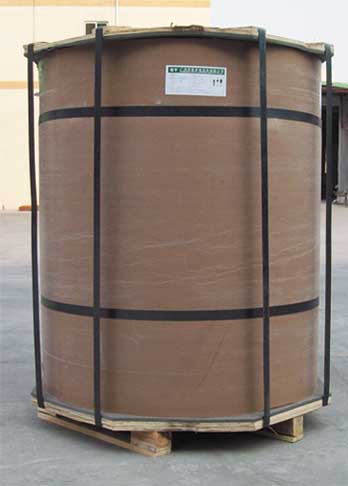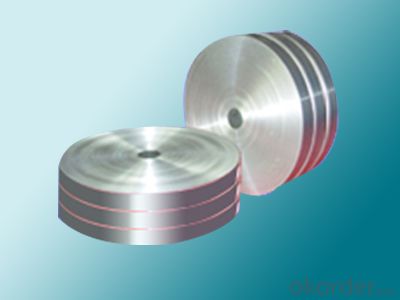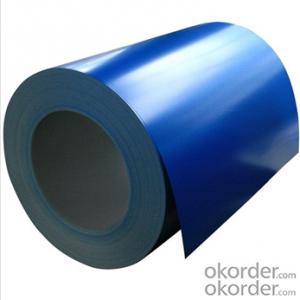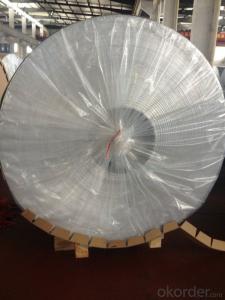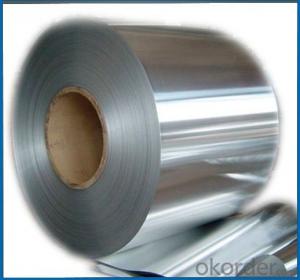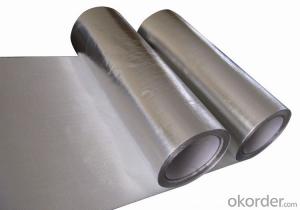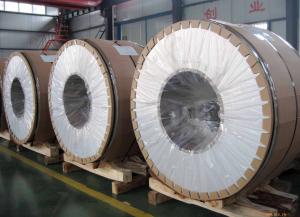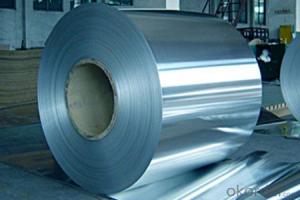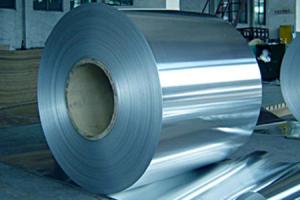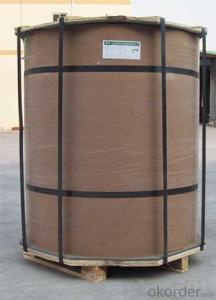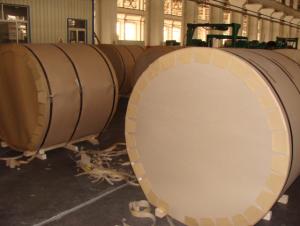Lowes Aluminum Coil - Aluminum Strips Mill Finished 3xxx
- Loading Port:
- China Main Port
- Payment Terms:
- TT or LC
- Min Order Qty:
- 5 g/ft
- Supply Capability:
- 10000 g/ft/month
OKorder Service Pledge
OKorder Financial Service
You Might Also Like
1.Structure of AluminumStrips Mill Finished 3XXX Description
AluminumStrips Mill Finished 3XXX has great ductility, heat conductivity, anti-corrosion and moisture resistance properties.
AluminumStrips Mill Finished 3XXX is widely used for electronics, instruments, lighting decoration, packing industry, house decoration, curtain wall, honeycomb-core panel, sandwich panel, aluminum composite panel and aluminum composite pipes.
2.Main Features of the AluminumStrips Mill Finished 3XXX
• Superior quality of raw material
• Reasonable and stable chemical composition
• Accurate tolerance
• Goode mechanical property
3.AluminumStrips Mill Finished 3XXX Images
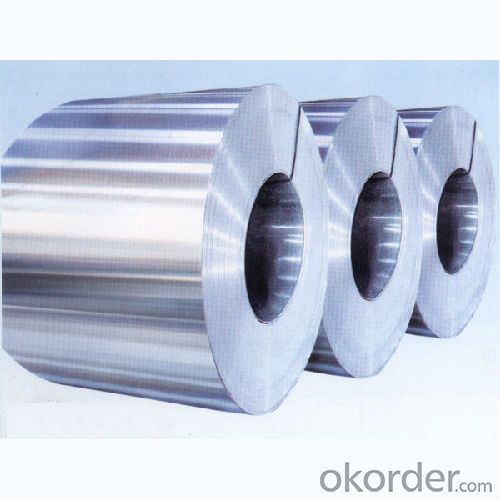
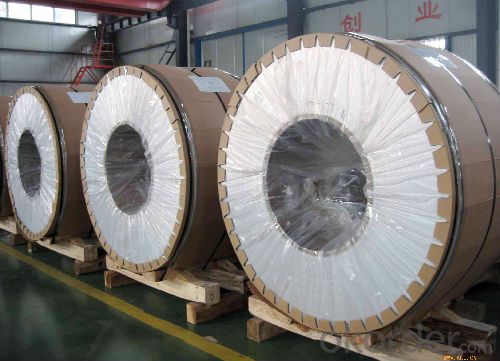
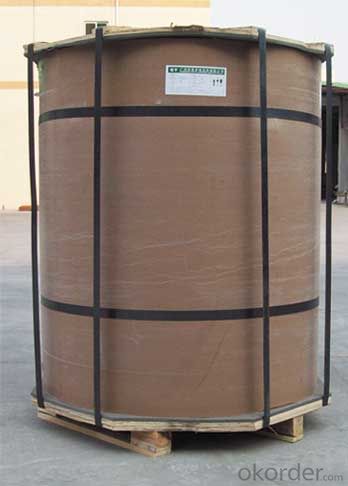
4.AluminumStrips Mill Finished 3XXX Specification
| Alloy | AA3xxx (AA3003,AA3004,AA3005,AA3105 etc |
| .Temper | H14,H16,H18,H22,H24,H26,H32,O/F |
| Thickness | 0.2mm--100mm |
| Width | 30mm--1700mm |
| Standard | GB/T 3880-2006 |
5. FAQ of AluminumStrips Mill Finished 3XXX
A.How to guarantee the quality?
Customers are welcome to our mill to visit and check the products. Besides, we can arrange a third party to test the AluminumStrips Mill Finished 3XXX products.
B.When will you deliver the products?
The AluminumStrips Mill Finished 3XXX will be delivered within 35 days after receiving advanced payment or original L/C.
- Q: This question asks if aluminum coils are susceptible to rusting.
- <p>Aluminum coil does not rust in the traditional sense. Instead, it forms a thin, protective layer of aluminum oxide when exposed to air, which prevents further corrosion. This oxide layer is different from rust, which is iron oxide. While aluminum can tarnish or corrode under certain conditions, such as exposure to certain chemicals or in extreme environments, it does not rust like iron or steel. Proper storage and handling can help maintain the integrity of aluminum coils and prevent unwanted reactions.</p>
- Q: What is the typical width tolerance for aluminum coils?
- Depending on the specific industry and application, the width tolerance for aluminum coils can vary. Typically, the width tolerance for aluminum coils is around ±0.005 to ±0.010 inches. This means that the actual width of the aluminum coil can vary within this range from the specified target width. It is important to understand that these tolerances can be stricter or more lenient depending on the specific requirements of the customer or application. Furthermore, aluminum coil manufacturers often provide different width tolerances for different grades or thicknesses of aluminum coils. Therefore, it is essential to refer to the manufacturer's specifications or guidelines for accurate information on the width tolerance for a particular aluminum coil.
- Q: What are the different thickness options for aluminum coils?
- Aluminum coils are available in a wide range of thickness options to cater to various industrial and commercial applications. The thickness of aluminum coils is typically measured in gauge or millimeters (mm). Common thickness options for aluminum coils include: 1. Thin Gauge: Thin gauge aluminum coils are usually between 0.15 mm to 0.4 mm thick. These coils are commonly used for applications that require lightweight and flexible materials, such as packaging, electrical wiring, and insulation. 2. Standard Gauge: Standard gauge aluminum coils range from 0.4 mm to 2.5 mm in thickness. These coils are widely used in industries like construction, automotive, and aerospace for applications such as roofing, cladding, heat exchangers, and structural components. 3. Thick Gauge: Thick gauge aluminum coils are typically above 2.5 mm in thickness. These coils are predominantly used in heavy-duty applications that require high strength, durability, and load-bearing capacity. Examples include shipbuilding, industrial machinery, and large-scale structural frameworks. It's important to note that the availability of specific thickness options may vary depending on the manufacturer and the intended application. Custom thicknesses can also be manufactured to meet specific project requirements.
- Q: What are the benefits of using aluminum coils?
- There are several benefits of using aluminum coils in various applications. Firstly, aluminum coils are lightweight, making them easier to handle and transport. This is particularly advantageous in industries such as automotive and aerospace, where weight reduction is crucial for fuel efficiency and overall performance. Additionally, the lightweight nature of aluminum coils allows for easier installation and maintenance. Secondly, aluminum has excellent corrosion resistance properties. Unlike other metals, aluminum does not rust or corrode easily when exposed to moisture or chemicals. This makes it an ideal choice for outdoor applications and environments with high humidity or harsh weather conditions. The corrosion resistance of aluminum coils ensures their longevity and durability, reducing maintenance and replacement costs. Another benefit of using aluminum coils is their high thermal conductivity. Aluminum is an excellent conductor of heat, allowing for efficient heat transfer in various heating and cooling systems. This property makes aluminum coils suitable for applications such as air conditioning, refrigeration, and heat exchangers. The high thermal conductivity of aluminum coils ensures better energy efficiency and improved performance of these systems. Furthermore, aluminum is a highly recyclable material. Using aluminum coils promotes sustainability and reduces environmental impact. Aluminum can be recycled repeatedly without losing its quality or properties, making it a cost-effective and eco-friendly choice. By using aluminum coils, businesses can contribute to the circular economy and minimize their carbon footprint. In summary, the benefits of using aluminum coils include their lightweight nature, corrosion resistance, high thermal conductivity, and recyclability. These advantages make aluminum coils a versatile and cost-effective solution for various industries, enhancing performance, efficiency, and sustainability.
- Q: Can aluminum coils be used for pharmaceutical packaging?
- Yes, aluminum coils can be used for pharmaceutical packaging. Aluminum is a popular choice for packaging in the pharmaceutical industry due to its excellent barrier properties, light weight, and resistance to corrosion. It provides a protective and hygienic environment for pharmaceutical products, ensuring their safety and extending their shelf life.
- Q: What is the maximum temperature aluminum coils can withstand?
- The maximum temperature that aluminum coils can withstand is influenced by several factors, which include the particular alloy of aluminum and the intended application of the coils. In general, aluminum has a melting point of approximately 660 degrees Celsius (1220 degrees Fahrenheit). Nevertheless, when it comes to aluminum coils employed in diverse industries like HVAC systems and electrical appliances, they are typically engineered to function within a temperature range of -30 to 150 degrees Celsius (-22 to 302 degrees Fahrenheit). These temperature boundaries guarantee that the aluminum coils maintain their structural integrity and avoid any notable degradation or harm. To ascertain the maximum temperature tolerance of the specific aluminum coils in question, it is crucial to refer to the manufacturer's specifications or guidelines.
- Q: Are there any restrictions on the coil length of aluminum coils?
- Restrictions do exist regarding the length of aluminum coils. Typically, the maximum coil length is determined by the capabilities of the equipment utilized for coil production and handling. Several factors contribute to this determination, including the dimensions and capacity of coil winding machines, transportation and storage restrictions, and the coil's weight and stability. Moreover, longer coils may encounter increased handling and logistical challenges, such as heightened risk of damage during transportation or difficulties in uncoiling and processing. Consequently, it is crucial to take into account these restrictions and limitations when deciding on the suitable length for aluminum coils.
- Q: my homework was to find out how do you get aluminium for rocks! I've been looking around but every web site i've been on only says that aluminium comes from rocks, but it doesn't say how you get it from rocks.e.g you get wool from sheep by shearing of their coat.so if anyone knows how you get aluminum from rocks please tell me i need your help.
- Well, you start with an aluminum rich rock (cheaper to process). The raw ore after physical concentration (removal of secondary minerals) is reacted by an electrolytic process. This means that electricity is used to convert the aluminum ion in the raw rock into the metal aluminum. Sort of like the reverse of a battery, to keep things simple. Aluminum smelters tend to be set up in places with cheap electricity, because the process uses a LOT of electricity. That is why there are several up here in quebec, we have cheap hydro electricity and the government gives decent deals to the smelters on top of the already low market price. Do a search on aluminum smelting to find out more. Not sure what your level of knowledge is so not sure how much you will understand.
- Q: Can aluminum coils be used in automotive applications?
- Yes, aluminum coils can be used in automotive applications. Aluminum coils are lightweight, which makes them an excellent choice for automotive manufacturers as it helps to reduce the overall weight of the vehicle. This, in turn, can improve fuel efficiency and performance. Additionally, aluminum coils have excellent heat conductivity, which is crucial in automotive applications where heat dissipation is important. Moreover, aluminum coils have good corrosion resistance, which is particularly beneficial in automotive applications where vehicles are exposed to various weather conditions and road salts. Overall, the use of aluminum coils in automotive applications can provide several advantages such as weight reduction, improved fuel efficiency, better heat dissipation, and enhanced corrosion resistance.
- Q: i know that your not suppose to use DC for aluminum only with AC but is it possible?
- Yes you can use the following settings with the following particularities: 1. DC+ (positive at the electrode) - This setting will provide you with lower penetration of the weld and high wear of the electrode (70% of the heat is at the (+) pole and 30% of the heat is at the( -)) The definite advantage of this setting is that the aluminum oxides are cleaned during welding by the eletric arc from the parts you are welding and the weld is a high quality clean weld that looks very good and appealing. In order to avoid premature wear (or even melting) of the electrode try to weld with lower amperage. 2. DC- (negative at the electrode) - This setting is reversed compared to the first one. Because of the 70% of the heat at the (+) pole the penetration is good, the electrode preserves very well but you don't get the cleaning effect of the electric arc during welding. If you choose this setting then you will have to clean thoroughly the material right before welding. The weld won't be as appealing as the one obtained with the first setting. 3. AC actually combines the DC+ and DC- because half the time the electrode is (-) and half the time is (+). This is the best setting you can have for TIG Aluminum welding using Argon as shielding gas. Remember the cleaning action works only with Argon. I hope this helps.
Send your message to us
Lowes Aluminum Coil - Aluminum Strips Mill Finished 3xxx
- Loading Port:
- China Main Port
- Payment Terms:
- TT or LC
- Min Order Qty:
- 5 g/ft
- Supply Capability:
- 10000 g/ft/month
OKorder Service Pledge
OKorder Financial Service
Similar products
Hot products
Hot Searches
Related keywords
